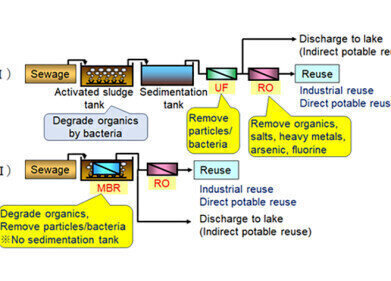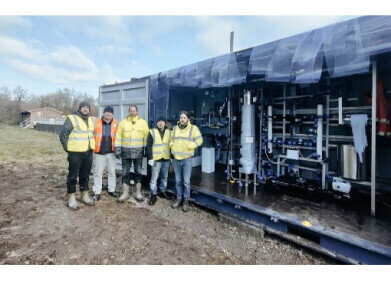Water/Wastewater
How Has New Jersey Reduced Pollution in Its Waterways?
Mar 08 2017
Polluted streams and rivers aren’t just an eyesore. They’re dangerous to life in the water, as well as surrounding habitats. In the US, there has been growing concern about public use of some waterways because of the increased use of fertiliser on nearby farms. Legislations have been made stricter to tackle this, but has New Jersey managed to reduce the problem?
Surveying the damage
The US Geological Survey provides research and statistics about natural problems and hazards that threaten the wellbeing of both humans and wildlife. They studied the waterways in New Jersey to monitor the levels of different pollutants. With samples from 28 streams across the state, they found that two key pollutants had actually been reduced in concentration. Nitrogen and phosphorus has either reduced or at worst stayed the same over the past 40 years.
It’s thought the reduction was a result of improvements in wastewater treatment as well as management of stormwater more locally. “Modernization of wastewater treatment plants, better stormwater management at the local level, decades of good work by the DEP, and tough laws protecting rivers, streams, and ecologically sensitive areas along them are resulting in healthier waterways,” said Bob Martin, New Jersey’s DEP Commissioner.
The management of stormwater is important as it can carry wastewater, spreading pollutants contained within the waste. Solutions to this naturally occurring problem are discussed in the article ‘The best way to clean up flooded lakes and reservoirs?’.
Taken with a pinch of salt
The news isn’t all positive though. Also revealed in the findings was a gradual increase in salt levels over time. Levels of chlorides were found to be higher in all streams analysed, compared to four decades ago.
“Increasing trends in chloride concentrations are common in rivers in urban areas across the northern U.S. and appear to be related to increased use of road salt in recent decades,” explained Bob Hirsch, the report’s co-author.
Work to be done
However, as Hirsch also asserts: “elevated salt concentrations in streams can harm aquatic organisms”. The lowering of nitrogen and phosphorus is great news for New Jersey, but there is clearly changes needed to reduce the damage of chloride in waterways.
In response to the rise in salt levels, new guidelines have been issued for snow salting procedures. Municipalities have been ordered to collect snow after it has been plowed from roads near waterways. This will hopefully prevent the snow, containing dirt and salt, from washing into the waterways and causing the problem New Jersey has seen to date.
Events
May 05 2024 Seville, Spain
May 13 2024 Munich, Germany
May 23 2024 Beijing, China
May 23 2024 Beijing, China
Jun 10 2024 Algiers, Algeria













